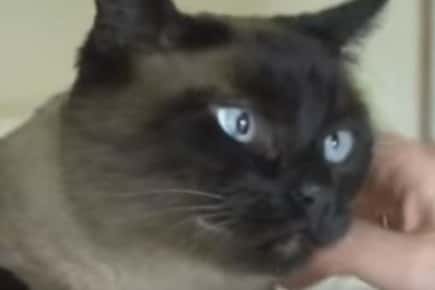
It's doubtful that anyone would picture their family veterinarian swinging a light saber on the bridge of some galactic cruiser, but he or she may just have a similar technology available to help keep your pets comfortable during surgery.
For more than 30 years, human doctors have used various types of surgical lasers to help people heal faster and with less pain. Lasers are now used routinely to help correct eyesight, remove skin blemishes, and even destroy unwanted hair. But, it has only been within the past 10 years that veterinary medicine has started to utilize this same technology to provide a similar level of comfort for their patients.
Using a laser during surgery instead of a scalpel blade provides many advantages to the surgeon. First, due to the precise nature of lasers, the veterinarian is able finely tune the amount of tissue that is affected by the surgery, thereby reducing the damage to any of the surrounding area. Second, lasers will actually help to control bleeding by sealing off the tiny capillaries and vessels that may leak and ooze during normal surgeries. Third, lasers help to reduce the amount of swelling that is associated with any sort of surgery. By avoiding bruising and tearing of body tissue, lasers help the veterinarian to minimize inflammation. Fourth, since lasers vaporize cells, any latent bacteria that might want to start an infection will also be vaporized, helping to minimize potential post-operative infections. And finally, lasers reduce the amount of pain involved in surgeries by actually sealing the ends of nerves in the affected tissues. This stops the propagation of the pain impulse and will actually help the pet to heal faster!
By far, one of the most common uses of the surgical laser in the veterinary hospital is to perform declawing of cats. Although this elective surgery has many proponents and opponents, almost everyone would agree that the advent of using the laser for declawing procedures has helped minimize the trauma associated with the surgery. As mentioned above, lasers will actually seal small nerves, keeping them from transmitting painful impulses. Cats that have been declawed with a laser are often running and playing within hours of surgery. In contrast, older techniques of declawing cats have potentially kept a cat uncomfortable for several days afterwards.
